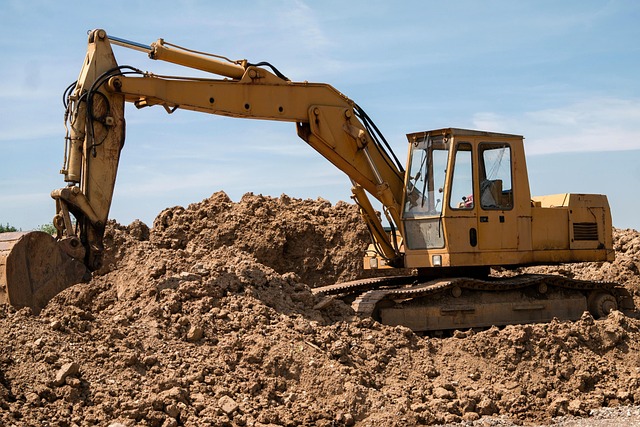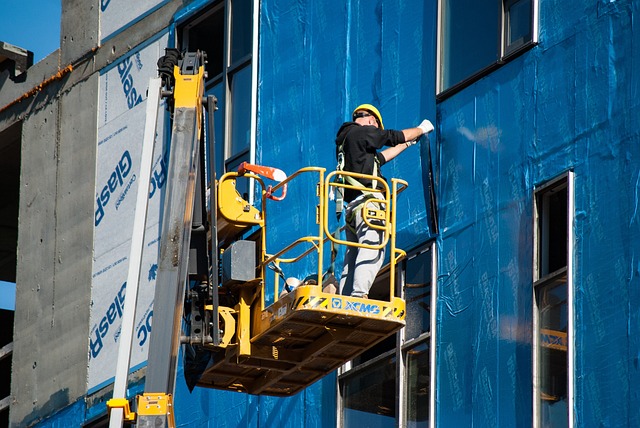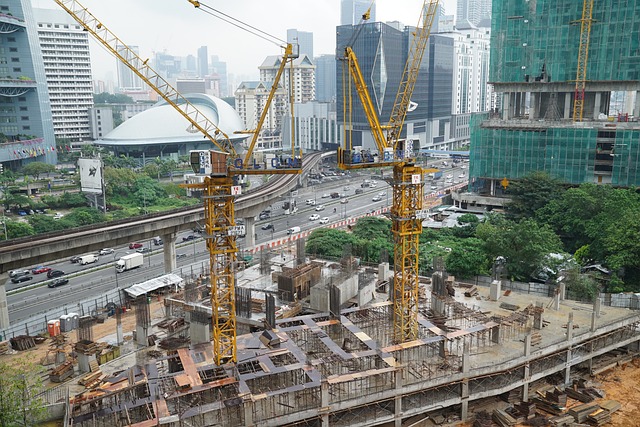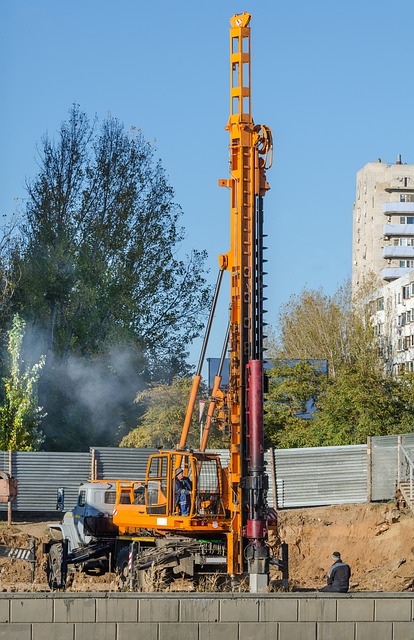Construction equipment loans are crucial for business growth, but securing the right financing requires a meticulous lender evaluation. This process involves researching lenders' reputation, comparing interest rates and terms, understanding collateral requirements, and assessing potential risks. By thoroughly evaluating lenders, businesses can find suitable options that align with their expansion goals while mitigating financial risks. A strategic approach includes preparing robust financial projections, researching various lenders, and being transparent about needs and history to secure favorable loan conditions for efficient equipment purchases and business growth.
“Construction equipment loans are a powerful tool for businesses aiming to expand their horizons. This article provides a comprehensive guide on harnessing this financial leverage. We explore ‘Understanding Construction Equipment Loans’ and its integral role in business growth, particularly focusing on ‘Lender Evaluation’. Learn how lenders assess expansion plans and what factors influence loan approval. Additionally, we offer practical tips for a smooth loan process and strategies to maximize these loans for sustainable, long-term success, emphasizing the importance of thorough lender evaluation.”
- Understanding Construction Equipment Loans: A Comprehensive Overview
- The Role of Lender Evaluation in Business Expansion Plans
- Key Factors Lenders Consider When Approving Loans for Construction Equipment
- Navigating the Loan Process: Tips for Businesses Seeking Funding
- Maximizing Construction Equipment Loans for Sustainable Business Growth
Understanding Construction Equipment Loans: A Comprehensive Overview

Construction equipment loans are a financial tool that plays a pivotal role in fueling business growth and expansion, particularly within the construction industry. These specialized loans are designed to cater to the unique needs of construction companies, enabling them to purchase or upgrade essential machinery, vehicles, and tools required for various projects. By securing funding through such loans, businesses can access high-value assets that might otherwise be out of reach due to upfront cost constraints.
When considering a construction equipment loan, thorough research and evaluation by prospective borrowers are essential. This involves assessing the lender’s reputation and terms, comparing interest rates and repayment periods, and understanding the collateral requirements. A comprehensive lender evaluation ensures that the chosen financing option aligns with the borrower’s financial capabilities and project goals. It’s crucial to balance the benefits of accessing capital against the potential risks and obligations associated with the loan.
The Role of Lender Evaluation in Business Expansion Plans

When considering construction equipment loans for business expansion, a thorough lender evaluation is paramount. This process involves assessing the financial health and stability of potential lenders, ensuring they possess the resources and expertise to facilitate the loan process smoothly. A meticulous evaluation includes examining the lender’s interest rates, repayment terms, collateral policies, and customer reviews, providing insights into their reliability and fairness.
By thoroughly evaluating lenders, businesses can make informed decisions, aligning their expansion plans with suitable financing options. This strategic approach minimizes risks, secures favorable loan conditions, and ultimately contributes to the success of the expansion project.
Key Factors Lenders Consider When Approving Loans for Construction Equipment

When lenders evaluate construction equipment loans, they consider several key factors that ensure both the viability of the business and the security of the loan. Firstly, they assess the creditworthiness of the borrower, examining their financial history and current cash flow to determine their ability to repay the loan. This includes checking credit scores, debt-to-income ratios, and any existing loan obligations. Lenders also want to see a solid business plan outlining how the construction equipment will be used to expand operations and generate revenue. A clear strategy demonstrating market demand, projected profits, and a timeline for repayment is crucial for approval.
Additionally, lenders evaluate the value and condition of the construction equipment being purchased. They may require detailed appraisals to ensure the equipment aligns with the loan amount requested and that it has potential residual value upon repayment. Market trends and competitive analysis are also considered to gauge the reasonableness of the equipment cost in relation to industry standards. Lastly, lenders assess the overall risk associated with the project, taking into account factors like location, permits, insurance, and any potential delays or unforeseen costs that could impact repayment.
Navigating the Loan Process: Tips for Businesses Seeking Funding

Navigating the loan process can be a complex task for businesses seeking expansion, especially in the construction equipment sector. The first step is to understand that every lender has its own evaluation criteria. This includes assessing the health of your business, the type and size of the equipment you wish to purchase, as well as the potential return on investment. It’s crucial to prepare detailed financial projections and a solid business plan to impress lenders.
Researching different lenders is key; compare their terms, interest rates, and repayment options. Be transparent about your business needs and financial history. Lenders often appreciate a comprehensive understanding of the market and your strategic plans for future growth. Demonstrating these factors can increase your chances of securing a favorable loan, enabling you to efficiently fund your construction equipment purchases and drive business expansion.
Maximizing Construction Equipment Loans for Sustainable Business Growth

Maximizing construction equipment loans is a strategic move for businesses aiming for sustainable growth. Before securing funding, meticulous planning and a thorough lender evaluation are essential. Assessing your company’s financial health, identifying specific equipment needs, and determining the loan amount that aligns with your expansion goals are crucial steps. A careful analysis ensures you receive the most suitable terms and conditions from lenders, enabling efficient utilization of funds for purchasing or upgrading machinery, which can significantly impact project timelines and long-term profitability.
During the lender evaluation process, pay close attention to interest rates, repayment periods, and any additional fees or requirements. Understanding these factors allows for informed decision-making, ensuring the loan terms support your business objectives. Effective management of construction equipment loans involves adhering to repayment schedules while monitoring cash flow to accommodate unexpected project challenges. This disciplined approach facilitates a smoother transition during business expansion, leveraging borrowed funds to create a robust and efficient operation.






